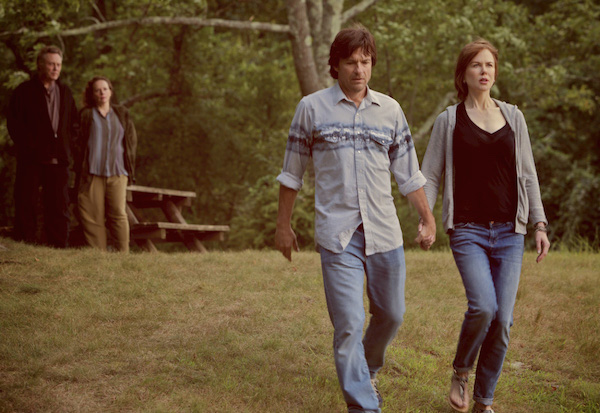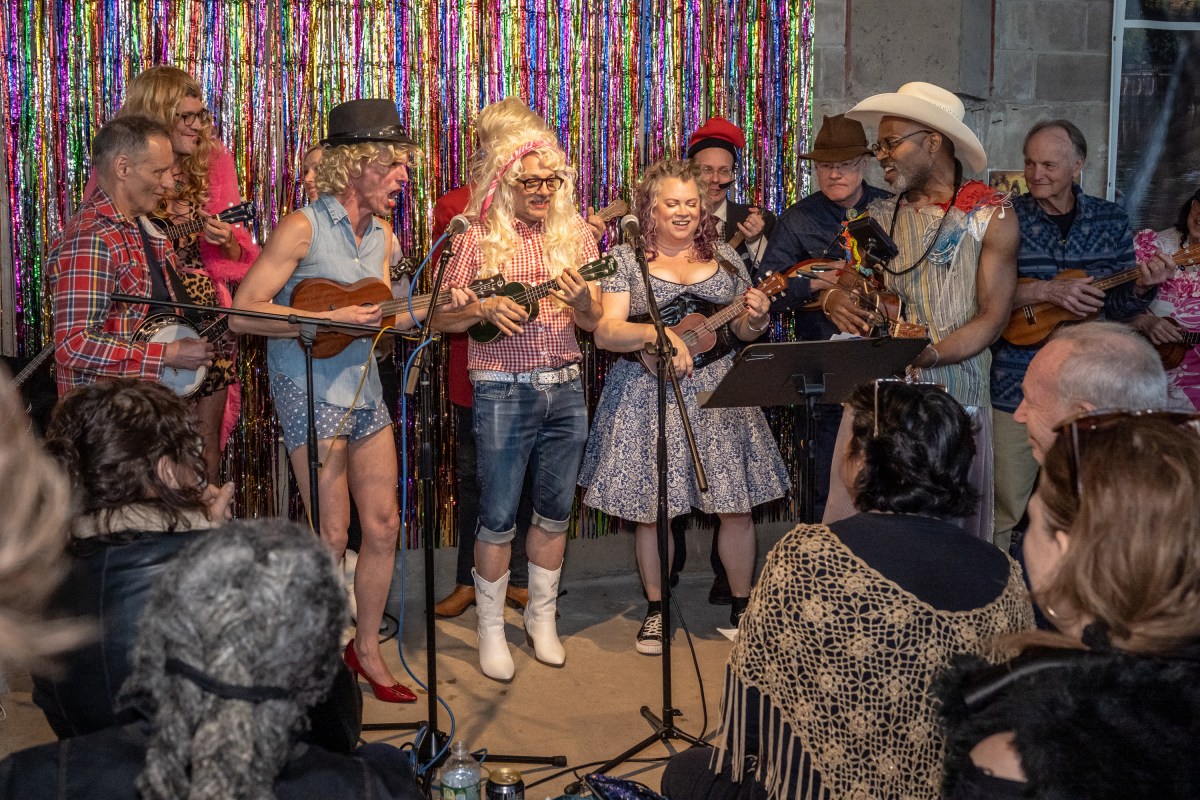TRIBECA FILM FESTIVAL REVIEW: “THE FAMILY FANG”
Director: Jason Bateman | Screenwriter: David Lindsay-Abaire | Runtime: 107 minutes
Sat., Apr. 16, 9pm at the John Zuccotti Theater @ BMCC Tribeca Performing Arts Center (199 Chambers St., btw. Greenwich & West Sts.). Sun., Apr. 17, 9:45pm at Regal Cinemas Battery Park (102 North End Ave., at Vesey St.). Wed., Apr. 20, 9pm at Bow Tie Cinemas Chelsea (260 W. 23rd St., btw. Seventh & Eighth Aves.). Tickets: $20 plus $3.50 phone & web processing fee ($10 plus processing for pre-6pm screenings). Visit tribecafilm.com or call 646-502-5296.

BY PUMA PERL | In an early flashback scene in “The Family Fang,” a film based on the novel by Kevin Wilson, we meet the four family members sitting in a car as the father, Caleb, prepares them for a performance. The parents are the darlings of the avant-garde set, known for their guerilla performance art, with their children Annie and Baxter, identified only as Child A and Child B, growing up as players — and pawns — in the pieces.
“Don’t let the chaos control you,” instructs the father. “The chaos will happen all around you, not to you,” a sentiment that echoes throughout the film. Chaos and control: Fang family values.
The elder Fangs, dominated by Caleb, created a tragic, comedic and subversive existence in which art is the driving force, with the parents acting as directors of the events that shape their children’s lives. The siblings have evolved into emotionally isolated, dissatisfied adults with difficulties coping in the world outside of their previous fishbowl existence. They have remained close to one another in the ways that survivors of extreme dysfunction often do.
When a series of disappointments and bizarre incidents bring all four Fangs back to the family home, the psychodrama continues, despite the siblings’ efforts to separate themselves. The plot peaks when the parents suddenly vanish. Annie immediately surmises that it is a continuation of a life built on performance, despite evidence presented by the authorities. Baxter is less certain, and both must face the damage done in their upbringing.
Were they a real family or just an elaborate performance? How much do you sacrifice and how far do you go to make what you consider beautiful art? With the disappearance of their parents, are the Fang children finally free, or are they still emotionally enslaved by actions, which manipulated not only the observers, but the players? Despite the circumstances in which they are raised, there is a commonality of feelings, and in the ways that the inner and outer lives of parents shape children.
This is the second directorial outing for Jason Bateman, who plays Baxter. He does both with a balance of humor and insightfulness that keep the story accessible and touching, without undue sentiment. Nicole Kidman gives a layered and subdued performance; we sense her fury at her parents as she continues in the protective and nurturing role she has always played with her brother — somewhat heroically, since she was never on the receiving end of such actions. It’s a no-brainer that Christopher Walken is the perfect Caleb. I think it would have been more subversive if a “good guy” sort, like Tom Hanks, had played the role, but I have no argument with Walken’s performance. Maryann Plunkett, as Camille, does an excellent job (I wouldn’t have minded seeing a little more of her).
In the end, the mysteries of the Fangs’ disappearance are revealed, but we are left with many more questions about the meaning of art and family that may never be fully resolved.

















